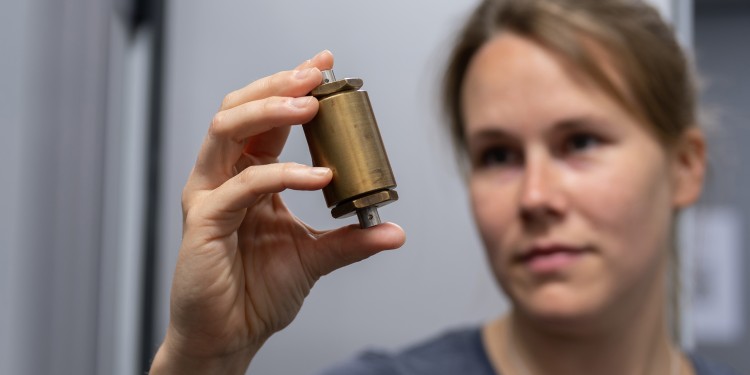
New study takes close look at energy storage
Research into electrochemical energy storage devices and their development are among those fields of material sciences in which most work is being done worldwide. The rapidly growing need for high-performance batteries for a large number of applications has led to an increasing interest in achievable charging capacities and speeds. Equally, attention is being focused more strongly on the lifetimes, safety and availability of material resources, as well as on carbon footprints. It is against this background that chemists Prof. Jürgen Janek from Justus Liebig University Giessen and Prof. Wolfgang Zeier from the University of Münster and Helmholtz Institute Münster of Forschungszentrum Jülich, took a close look at the developments of the last ten years in the field of solid-state batteries. For this purpose, the researchers analysed the current state of the technology, critically considering the challenges and the unresolved issues which need to be dealt with to make solid-state batteries competitive. This critical assessment of the technology has been published in the latest issue of the journal Nature Energy as a review article.
The solid-state battery is a further development of the lithium-ion battery, whose function is currently achieved by means of a liquid, organic electrolyte. The aim is to use a solid electrolyte in solid-state batteries, promising better storage properties, longer lifetimes and increased safety. The development of solid-state batteries has been pursued worldwide in intensive research work for about ten years now.
“What is becoming clear is that the concept of the solid-state battery today comprises a number of variations, the success of which cannot be safely predicted yet,” is how Jürgen Janek summarises the state of play in developments. One conclusion the researchers have drawn is that, in spite of the wide-ranging activities being undertaken in research institutes and industrial companies, there is not yet measurable progress over the established lithium-ion technology with its liquid electrolytes. In their analysis they mention various aspects as representing decisive challenges. One key point is the development of solid electrolytes which can ensure higher battery performance and safety at the same time as having as low a concentration of lithium as possible. Moreover, a maximum-capacity anode material is required which enables the battery to have less volume and weight. Overall, the researchers say that new approaches in material research through a combination of theory and experiment are necessary, in particular through collaborations between as many different disciplines as possible. “We take an optimistic view,” says Wolfgang Zeier. “Without any doubt, solid-state batteries will reach the commercialisation stage. The question is just when, and to what extent.”
Back in 2016, Jürgen Janek and Wolfgang Zeier, who were both at the University of Giessen at that time, also analysed the prospects for solid-state batteries and published their results in Nature Energy. Since then, the article has been cited more than 2,000 times, having a decisive influence on this field of research. In their latest and more comprehensive article in the same journal, the two authors have updated their analysis. In this earlier analysis in 2016 there were many basic questions which were still unanswered and largely unresolved, but this time there are additional factors which play a role – on the one hand as a result of implementing the technology and, on the other, concerning the important questions of material resources and costs.
The authors
The authors are among the leading international scientists working in the field of physical-chemical and inorganic chemical material research. Since 1999, Prof. Jürgen Janek has headed a working group on solid-state electrochemistry at the University of Giessen. He is also head of the Centre for Materials Research there and is one of the two scientific directors of the BELLA laboratory at the Karlsruhe Institute of Technology. He is a member of the Leopoldina National Academy of Sciences and for his achievements he was recently awarded an honorary doctorate by the Technical University of Delft, as well as the Greve Prize, presented by the Leopoldina for the first time. Prof. Wolfgang Zeier is Professor of Inorganic Solid-State Chemistry at the University of Münster and is also head of the Design of Solid Ionic Conductors department at Helmholtz Institute Münster (HI MS; IEK-12) of Forschungszentrum Jülich. The work done by his group on solid ionic conductors and solid-state batteries has received many awards – including, recently, one from the International Battery Association.
Funding
The German Ministry of Education and Research provided financial support for the work as part of the “FESTBATT” Cluster of Competence (Projects 03XP0431, 03XP0430A and 03XP0430F).
Original publication
Jürgen Janek and Wolfgang G. Zeier (2023): Challenges in speeding up solid-state battery development. Nature Energy (Review Article); DOI: 10.1038/s41560-023-01208-9
